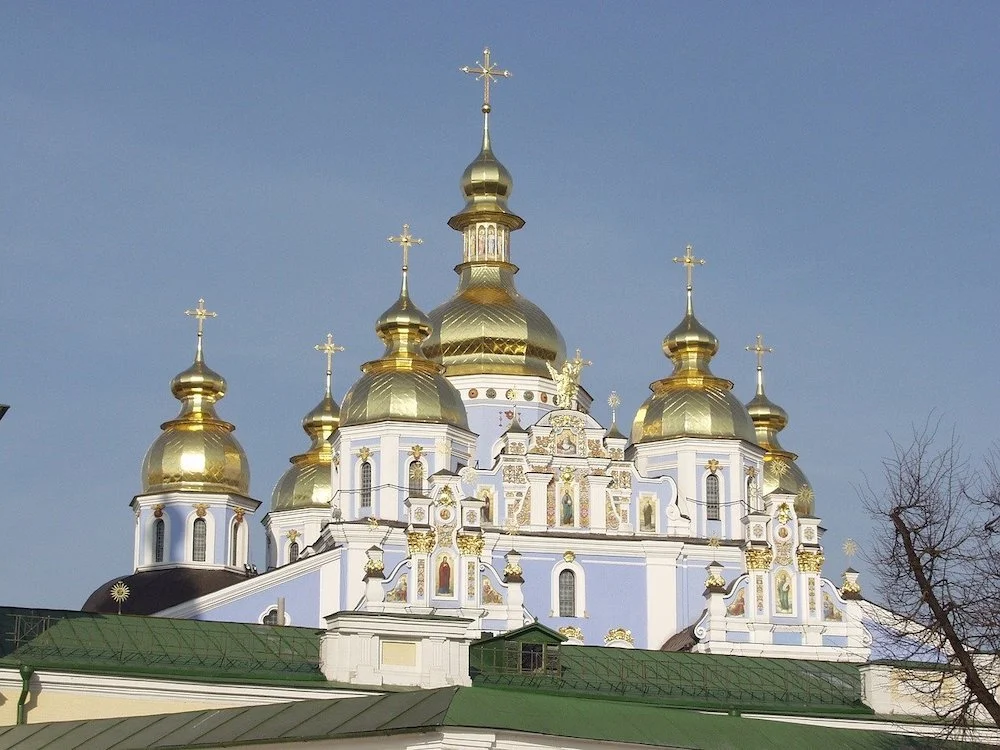Some of the nation’s top religion writers offer insights on what they found surprising — and not surprising — in the Pew Research Center’s massive Religious Landscape Study.
Read MoreMany people around the world are more likely to say it is important to have a nation's leader stand up for those who share their religious beliefs. The survey, conducted by Pew Research Center, found that in countries where faith is “perceived as very important” that citizens are overall “more likely to value each of these qualities in a leader.”
Read MoreThis week’s Weekend Plug-in highlights four takeaways from a new national survey on religion in public life. Plus, as always, catch up on all the best reads and top headlines in the world of faith.
Read MoreThe vast majority of U.S. adults say religion’s role in public life has declined — and a very large number of them are not happy about it. A new Pew Research Center report revealed the stark finding that 80% of U.S. adults agree with the statement that the role of faith in everyday American life is shrinking.
Read More(ANALYSIS) It's clear that both American evangelicals and Catholics feel compelled to show compassion when it comes to the issue of immigration — but also think that when it comes to politics, they seek solutions that include the notion that the enforcement of America's laws is not unkind.
Read MoreThis week’s Weekend Plug-in features a retrospective from columnist Bobby Ross Jr. on his 25 years on the Godbeat. Plus, a major new study on ‘nones’ — and, as always, all the best reads and top headlines in the world of faith.
Read MoreNearly 70% of U.S. adults call themselves "spiritual," or say they are "spiritual but not religious" or that "spirituality is very important in their lives," according to a new Pew Research study of spirituality. However, as vast as that tally sounds, no one knows if it signifies that spirituality is soaring – or simply being counted differently, and what people mean when they choose that label.
Read MoreThis week’s Weekend Plug-in highlights the latest research concerning the decline of Latino Catholics in the U.S. Plus, as always, catch up on all the best reads and top headlines in the world of faith.
Read More(OPINION) Surveys since 2020 show that a "steady share of Americans — about 40% — say they have participated in religious services in the prior month one way or the other," according to a Pew Research Center report. But other details are blurry, since the "share of U.S. adults who ... attend religious services once a month or more has dropped slightly, from 33% in 2019 to 30% in 2022."
Read MoreThis week we launch a new and improved version of Weekend Plug-in, the best roundup of religion news you’ll find anywhere. The death of Pope Emeritus Benedict XVI is our big story.
Read MoreThis week’s Weekend Plug-in opens with the 50th anniversary of “The Waltons,” a family drama that incorporated religious stories when the TV networks tended to avoid them. Plus, as always, catch up on all the best reads and top headlines in the world of faith.
Read More(OPINION) Ukraine's ecclesiastical history, like its political history, is highly complex. Whether the nation faces a military invasion or less bloody subversion and hoped-for domination, journalists these next few years will need to understand and depict the religious aspect of Ukraine’s nationalism and resistance against Russian expansionism.
Read More(OPINION) These days the "response rates" among those in randomly selected samples are so low it's tough to tell how representative the people are. Pew's expertise often provides all-important distinctions between white "mainline" and white "evangelical" Protestants, and between white and Hispanic Catholics. Pew is changing the way it surveys religious behavior and attitudes, so the media will want to be aware of why and how.
Read MoreNearly 30% of adults in the U.S. say they strengthened their religious faith in 2020, according to a study released Jan. 26 by Pew Research Center. Of those same people, 40% say that the pandemic and quarantine has strengthened their family bonds. The U.S. had almost double the increase of percentage points of individuals who felt that their faith was boosted during the pandemic compared to 13 other advanced economies.
Read MoreMany are tracking the way religious voters will vote in the upcoming election. Pew Research has published new data and analysis of these groups, noting that White Christians still lean toward Trump. They also offer analysis of the way religion has impacted past voting and approval ratings of President Trump.
Read MoreThe Fetzer Institute study finds that more than 80% of Americans say they are spiritual in some way, and that the more spiritual a person says they are, the more likely they are to engage in politics.
Read More(OPINION) In times of crisis, people often turn to religion for comfort and understanding. Studies have shown that prayer and interest in prayer have increased since the COVID-19 pandemic began.
Read MoreWith a long-trending decline in the number of Americans who identify as Christian, stay-at-home orders are testing churches’ ability to maintain connections with followers or lose more of their flocks. During Holy Week, many churches report higher views online than can fit in their sanctuaries. Some are even hosting virtual activities like an Easter egg hunt to engage kids.
Read More(OPINION) In Georgia, several publicly-funded Holocaust education initiatives face budget cuts. As Americans’ knowledge about this history declines, these programs should work together to find creative ways to survive and expand their reach.
Read More(OPINION) Traditional expressions of Christianity are decreasing all over Europe, although Christian identity is stronger for reasons not related to church doctrine or theology.
Read More


















